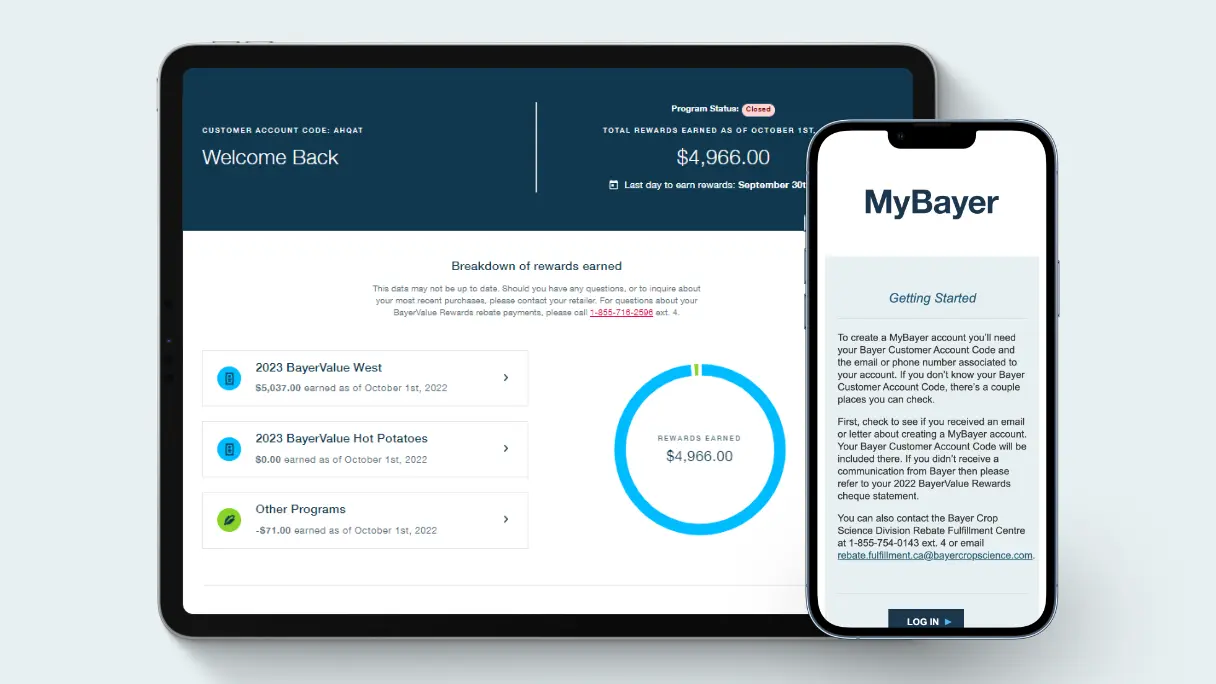Technology Protection
Monsanto Canada ULC created its Intellectual Property Protection Program in 1997 to help maintain a level playing field for Canadian farmers and ensure that farmers who haven’t paid for our patented technologies are not benefiting unfairly. Monsanto Canada ULC is now a subsidiary of Bayer AG and part of the Bayer group of companies (“Bayer”).
The foundation of the program is our commitment to treat all our farmer customers with a high level of integrity, respect and transparency.
Why does Bayer enforce its Patents?
To understand why Bayer enforces its patents, a discussion of patent law is an important starting place.
A patent is a right, granted by the federal government, to exclude others from making, using, or selling your invention in Canada. Why would the government allow a person to obtain a patent?
By giving inventors monopolies on their creations for a specific number of years, patents protect investments and allow inventors to profit financially from their creativity.
This in turn provides an attractive incentive for research and development, ultimately benefiting all Canadians. Without the possibility of patent protection, many people or companies might not take the risk of investing the time or money necessary to create or perfect new products, without which our economy would suffer.
Canadian Intellectual Property Office: www.cipo.ic.gc.ca
If someone other than the patent holder tries to make, use or sell the patented invention without the permission of the patent holder, they may be guilty of patent infringement. In Canada, if farmers plant and harvest Bayer’s patented trait technologies without a Technology Stewardship Agreement (TSA), they would be infringing Bayer’s patent rights.
The TSA (which is entered into between the farmer and Monsanto Canada ULC) gives farmers permission to use Bayer’s patented trait technologies. By signing this agreement, the farmer has a license to use our patented technologies subject to certain terms and conditions.
There is nothing unusual about including terms and conditions in the TSA. We face these types of terms and conditions every time we obtain a license for our car, our pets, or for the technology we use on our phone and computers. The TSA is a limited use license; it doesn’t allow farmers to distribute, transfer or sell patented technologies and it only allows them to plant the seeds on their own farm for a single season.
Monsanto invests in the enforcement of our patent rights for three key reasons:
No business can survive without being paid for its product.
Monsanto currently invests millions of dollars per day to develop and bring new products to market. If only some growers are paying the required technology fees, our ability to invest in research and development to create new products decreases.
When a grower decides to go against the terms of the TSA by saving and planting the harvested seed, it is unfair to other Canadian farmers who choose to honour their agreement with Monsanto.
Saving Seeds
One of the commitments in the TSA is a promise by farmers not to save patented seed from their harvest and plant it another season. It’s fair to say that when this condition was first introduced, it generated a lot of discussion. Farmers had been saving seeds from their harvest for re-planting for many years. But it’s important to keep in mind that farmers in the past were saving seeds that contained only naturally occurring traits, not the type of enhanced-trait seeds Bayer has developed for today’s farmers. Ultimately, farmers make the choice to purchase Bayer’s seed technology and they make the conscious choice to sign the TSA.
The results of our Intellectual Property Protection Program demonstrate there is wide-spread acceptance by farmers of the terms and conditions outlined in the TSA. The vast majority of farmers we meet honour the terms and commitments they accepted when they signed their TSA. They are prepared to purchase new patented seed for each growing season, mainly because they are getting the benefits they want and need on their farm. We recognize we can only be successful when we develop products that bring value and that farmers want.
Identifying Issues of Seed Piracy in your Community
In 1997, Monsanto started enforcing its patent rights in Canada. This was after two years of grower education across Canada about the rules and obligations associated with growing Monsanto’s patented seed technology on their farms.
At that time, we heard from farmers that we needed to make sure that everyone was following the rules. So, Monsanto found a way for farmers to let us know if they had concerns about patent infringement occurring in their community.
From time to time, Bayer receives phone calls to our Technical Support Line about possible situations of unlicensed use of Bayer’s technology occurring in a farmer’s community. To anonymously report a saved seed matter, please call 1-800-667-4944.
Settling the Matter
When Bayer discovers issues of patent infringement, we do not immediately rush to file a lawsuit in the local courthouse. Bayer is not in the business of suing farmers. We do everything we can to settle matters amicably and outside the courtroom.
